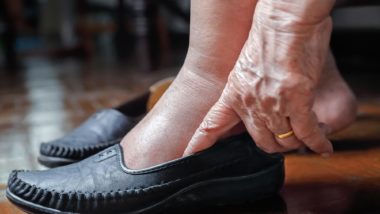Top Class Actions’s website and social media posts use affiliate links. If you make a purchase using such links, we may receive a commission, but it will not result in any additional charges to you. Please review our Affiliate Link Disclosure for more information.

Medications known as SGLT2 inhibitors are prescription medications used to help regulate blood sugar levels in adults diagnosed with type-2 diabetes. Brand names of SGLT2 inhibitors include Invokana, Invokamet, Jardiance, Qtern, Xigduo XR, Steglujan and Farxiga.
The U.S. Food and Drug Administration (FDA) is requiring all SGLT2 inhibitors include a warning that they have been linked to a susceptibility to necrotizing fasciitis of the perineum, a condition marked by the onset of flesh-eating bacteria in the area between the genitalia and the rectum. Another term for the necrotizing fasciitis of the genitalia is Fournier’s gangrene.
The potentially life-threatening infection usually begins through a small cut in the skin. The bacteria attacks the tissue under the skin of the perineum that contains muscles, nerves, fat and blood vessels. The bacteria literally kills the tissue that it attacks.
The reason the FDA is requiring the warning is because an unusually high number of cases were reported among SGLT2 patients beginning in 2013.
Despite the fact that Fournier’s gangrene is still quite rare, the FDA noted a dozen reports of the flesh-eating bacterial infection between March 2013 and May 2018. Invokana, the first SGLT2 inhibitor to be FDA-approved and placed on the market, became available in March 2013.
Patients Need Surgery for Necrotizing Fasciitis
The FDA said of the 12 reported cases of Fournier’s gangrene, seven were men and five were women. Each patient required hospitalization for IV antibiotics and surgical removal of the affected tissue. A number of patients needed more than one disfiguring surgery, and one patient died.
The FDA noted that most cases of Fournier’s gangrene have occurred in men until this latest group that included five women. The necrotizing fasciitis developed within the first several months of the patients beginning treatment with an SGLT2 inhibitor, and the drug was stopped in most cases, reported the FDA.
WebMD suggests several steps to lower the chances of contracting necrotizing fasciitis, including:
- Patients with diabetes should check the genitals and surrounding tissue for cuts or indications of infection, including swelling or drainage.
- Overweight or obese patients should attempt to lose weight.
- Patients who smoke, vape or chew tobacco should stop because the nicotine can damage and narrow the blood vessels.
- To reduce the risk of any type of infection, wash open wounds gently with soap and water. Wounds should be kept dry and clean until completely healed.
Necrotizing fasciitis can spread very quickly. The thighs, stomach and chest are vulnerable to spreading infection.
Patients taking SGLT2 inhibitors should be watchful for Fournier’s gangrene if diagnosed with a urinary tract infection, bladder infection or abscesses. Women who have undergone a hysterectomy also should be cognizant that they are healing properly.
Other risk factors for necrotizing fasciitis include alcohol abuse, steroids, chemotherapy, HIV and cirrhosis of the liver.
Join a Free Diabetes Medications & Flesh-Eating Infection Lawsuit Investigation
The type-2 diabetes medications linked to the flesh-eating infection include:
- Invokana
- Invokamet/Invokamet XR
- Farxiga
- Xigduo XR
- Qtern
- Jardiance
- Glyxambi
- Synjardy/Synjardy XR
- Steglato
- Segluromet
- Steglujan
If you or a loved one took one of the type-2 diabetes medications listed above and suffered from a flesh-eating genital infection, you may qualify to join this diabetes medication lawsuit investigation. Fill out the FREE form on this page for more information.
ATTORNEY ADVERTISING
Top Class Actions is a Proud Member of the American Bar Association
LEGAL INFORMATION IS NOT LEGAL ADVICE
Top Class Actions Legal Statement
©2008 – 2024 Top Class Actions® LLC
Various Trademarks held by their respective owners
This website is not intended for viewing or usage by European Union citizens.
Get Help – It’s Free
Join a Free Diabetes Medications & Flesh-Eating Infection Lawsuit Investigation
If you qualify, an attorney will contact you to discuss the details of your potential case at no charge to you.
PLEASE NOTE: If you want to participate in this investigation, it is imperative that you reply to the law firm if they call or email you. Failing to do so may result in you not getting signed up as a client or getting you dropped as a client.
E-mail any problems with this form to:
Questions@TopClassActions.com.
Oops! We could not locate your form.












